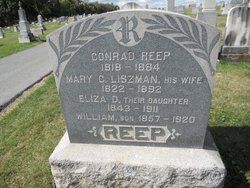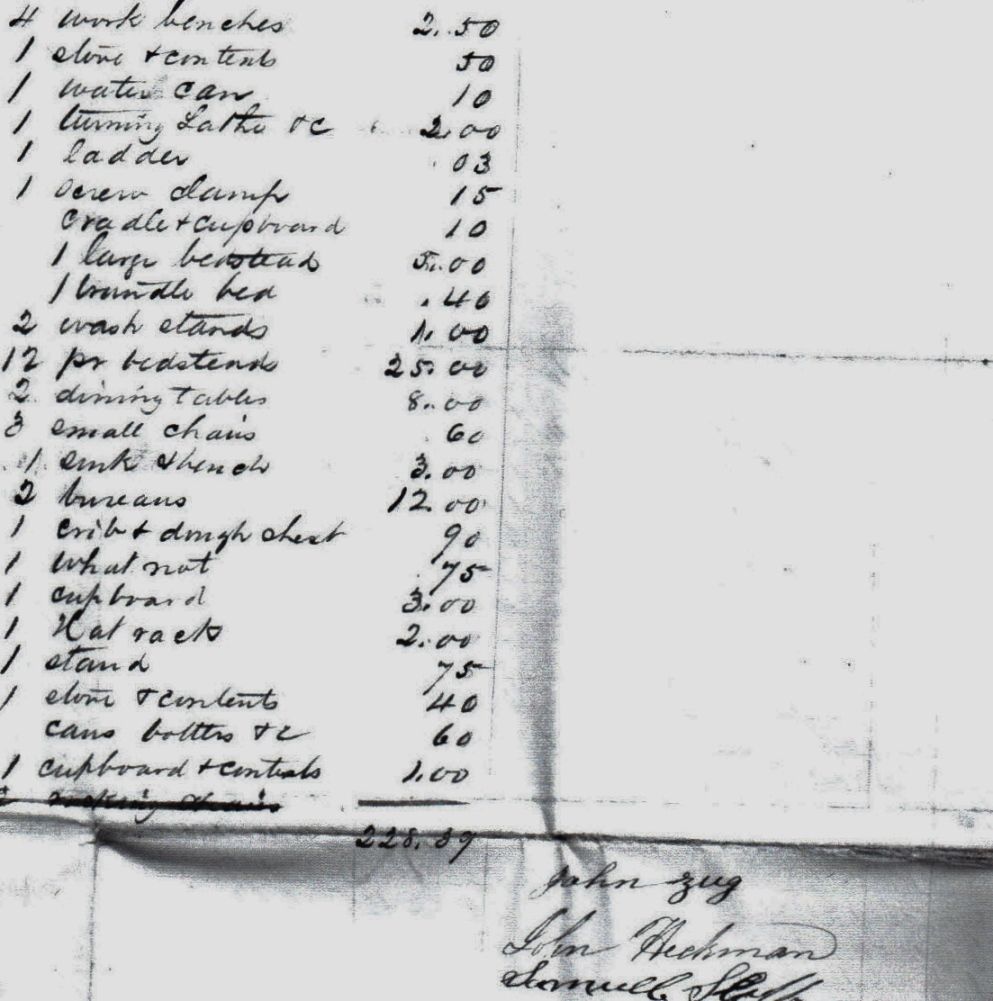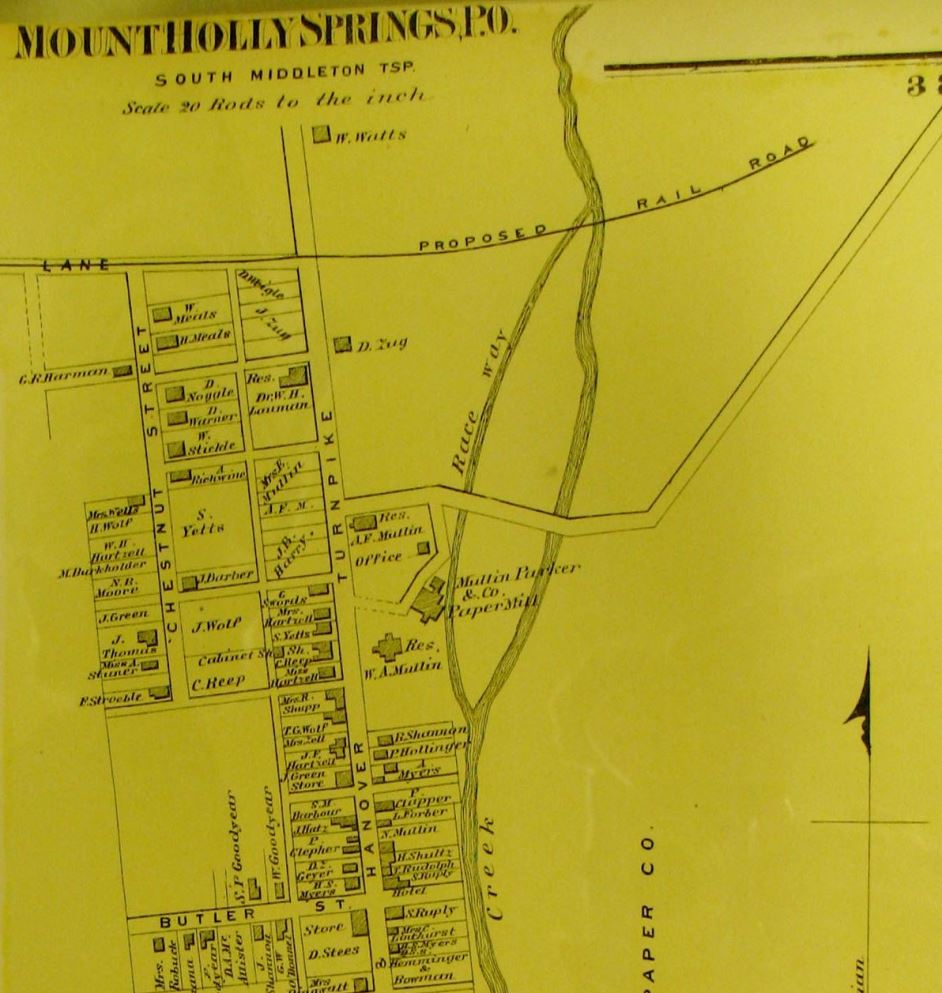Conrad Reep, his wife Catharine (Lizman) and their two young daughters emigrated from Hesse-Darmstadt, Germany in 1848.1 Reep’s brother-in-law, John Lizman, also from Hess-Darmstadt, had immigrated earlier and was a cabinetmaker in Carlisle.
Reep settled in Mount Holly Springs, six miles south of Carlisle. In 1856, he declared his intent to become a citizen and was naturalized on November 10, 1858.2 By 1860, four more children had been born, and 21-year-old Casper Lizman was living in Reep’s household and working as a cabinetmaker in his shop.
Reep had borrowed $100 from the Honorable Samuel Woodburn in 1857. He had not been able to pay the money back, so, at the January 1862 Term of Court, Woodburn’s executors brought a suit against Reep for the amount of the loan with interest. The court levied all of Reep’s personal goods and his two lots in Mt. Holly Springs (Papertown). One lot was 50’ x 180’ bounded by the Carlisle and Hanover Turnpike on the east and contained a two-story weather boarded double house, stable and other outhouses. The other lot was 100’ in front by 180.’ Reep asked the court to have his property appraised and set aside for his benefit amounting to $228.39. The sheriff summoned John Zug, John Heckman and Samuel Shupp to appraise $300 worth of property to remain for the benefit of Reep.3 As well as household goods and livestock, the appraisal listed tools, lumber, four work benches, a turning lathe and a hearse and harness.
Reep was able to recover financially, and by the time the 1870 U. S. Census was taken he had $1,800 worth of real estate and $1,000 of personal worth. He is listed in the 1870 Decennial Manufacturers Census in South Middleton Township as a cabinetmaker with $1,000 invested in his business. His furniture was made by hand by two men whom he employed 12 months a year. The annual value of the furniture that the shop produced was $700.
In 1880, the U. S. Census listed Reep’s occupation as “furniture dealer.” He suffered financial losses again, and on May 10, 1882, Joseph A. Stuart, his assignee, held a sale of Reep’s personal property. It included two hearses, cabinetmaker tools, three work benches, walnut, poplar and cherry lumber, coffins and “two large storerooms full of new furniture.”4
Reep died in 1884. His obituary appeared in the September 16, 1884 issue of Carlisle’s Daily Sentinel.
“Mr. Conrad Reep, an old citizen and for many years an undertaker at Mt. Holly, died suddenly on Saturday morning last of rheumatism of the heart. He was found dead in bed. It will be remembered that Mr. Reep and another man were thrown from a buggy near the depot at Mt. Holly a few weeks ago by the horse scarring at the [railroad] cars. Mr. Reep was thrown into the spring, and was soon afterward seized with rheumatism…”
Conrad, his wife and two children are all buried in Mt. Holly Springs Cemetery.


